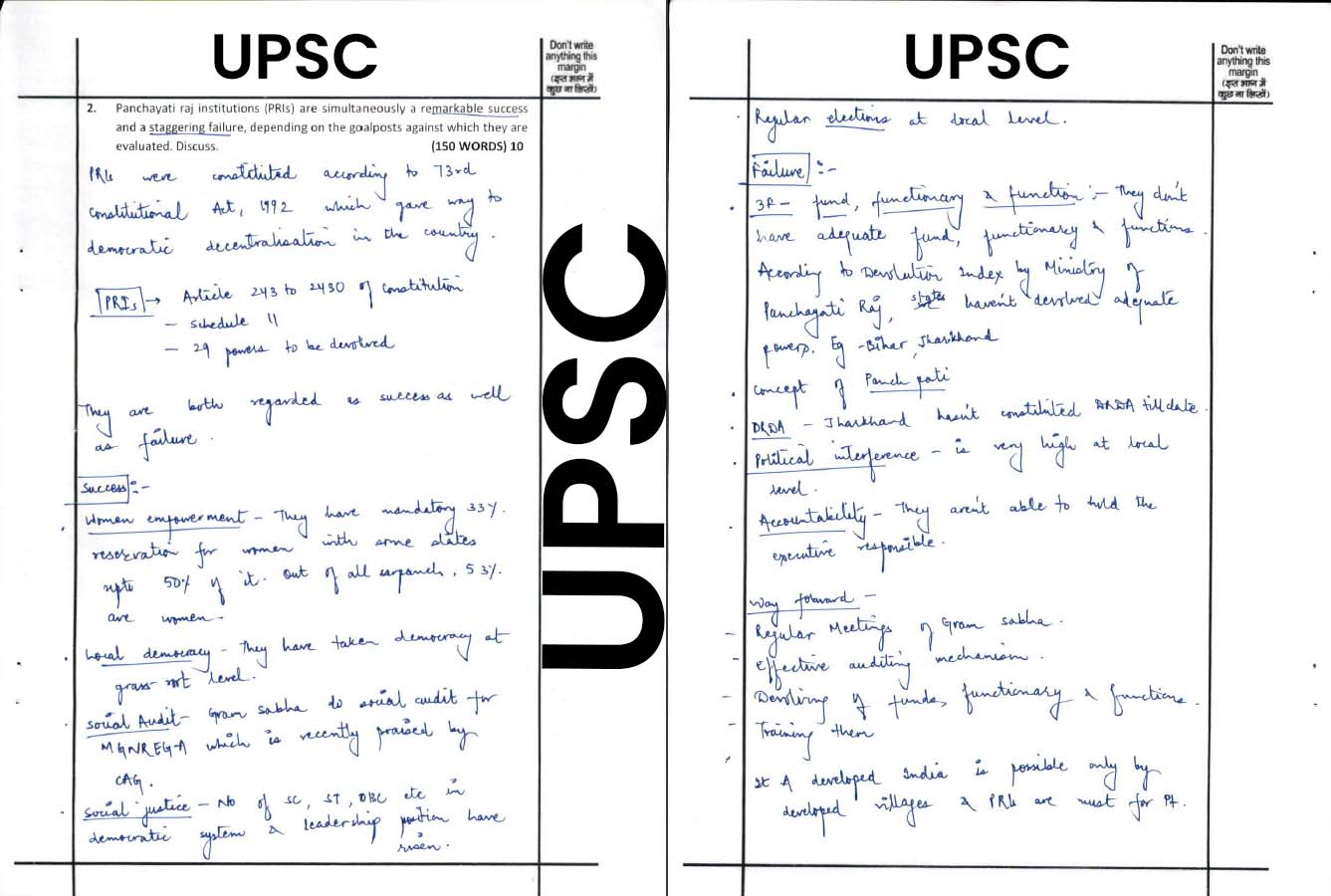The Union Public Service Commission (UPSC) Civil Services Examination is one of the toughest exams in India, with a vast syllabus and a low success rate. Many aspirants put in years of hard work to crack the exam and become an Indian Administrative Service (IAS) officer. One of the crucial components of the UPSC IAS examination is answer writing. In this article, we will discuss some strategies that can help aspirants write better answers and score higher marks in the examination.



- Understand the question: The first step in writing a good answer is to understand the question thoroughly. Read the question carefully, and identify the keywords and phrases. Make sure you understand what the question is asking you to do. If you are unsure, it is better to ask your mentor or teacher for clarification.
- Make a plan: Once you have understood the question, make a plan for your answer. Jot down the key points and the structure of your answer. This will help you to organize your thoughts and ensure that you cover all the relevant points in your answer.
- Write a clear introduction: The introduction should provide a brief background to the question and outline the main points that you will be discussing in your answer. It should be clear, concise, and engaging.
- Use examples: Use real-life examples to illustrate your points. This will help to make your answer more interesting and memorable. Use examples that are relevant to the question and show that you have a good understanding of the subject.
- Write in a structured manner: Your answer should be well-structured and easy to follow. Use headings and subheadings to organize your answer into sections. This will make it easier for the examiner to read and understand your answer.
- Use bullet points: Use bullet points to list your key points. This will make your answer more readable and help you to stay focused on the question.
- Be concise: Your answer should be concise and to the point. Avoid using unnecessary words or phrases. Stick to the relevant points and avoid repeating yourself.
- Use diagrams and flowcharts: Use diagrams and flowcharts to explain complex concepts or ideas. This will help you to convey your thoughts more clearly and make your answer more interesting.
- Write a conclusion: Your conclusion should summarize your key points and provide a final thought on the topic. It should be clear and concise.
- Revise and edit: Once you have finished writing your answer, revise and edit it. Check for spelling and grammar mistakes, and make sure that your answer is well-structured and easy to follow.
In conclusion, writing good answers in the UPSC IAS examination requires a combination of knowledge, analytical skills, and good writing skills. By following the above strategies, aspirants can improve their answer writing skills and increase their chances of success in the examination. Remember to practice writing answers regularly and seek feedback from your mentors or teachers to improve your skills further. Good luck!



